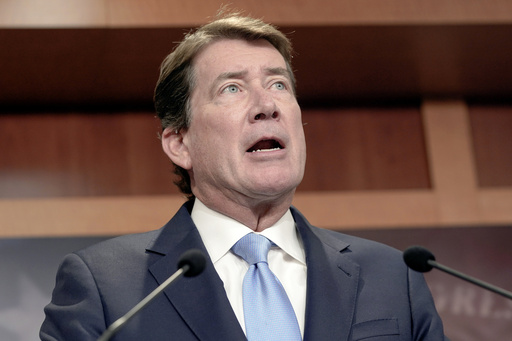
Following the election, President-elect Donald Trump swiftly appointed numerous individuals to his Cabinet, but took his time in choosing Scott Bessent, a billionaire investor, as his nominee for treasury secretary.
Trump aimed for a candidate who would not only align with his vision but also possess the ability to implement economic strategies effectively. Bessent’s background, which includes an education from Yale and extensive experience at Soros Fund Management before launching his own funds, makes him well-suited for the role he is about to undertake. His responsibilities will include navigating complex economic challenges while maintaining market confidence.
In a statement, Trump emphasized that Bessent would bolster his economic policies, focusing on enhancing U.S. competitiveness, rectifying trade imbalances, and promoting economic growth through energy independence. The president-elect intends for his treasury secretary to play a pivotal role in reshaping the global trade landscape, delivering significant tax cuts, managing national debt, and controlling inflation.
Despite his strong endorsement, Trump exercised caution in selecting Bessent due to the high stakes associated with economic performance. This cautious approach was evident as he made swifter decisions in appointing other Cabinet members, including Fox News host Pete Hegseth for defense secretary and Florida Senator Marco Rubio for secretary of state.
Bessent’s selection drew criticism from billionaire Elon Musk, who co-leads Trump’s initiative aimed at improving government efficiency. Musk regarded Bessent as a “business-as-usual choice,” highlighting the tensions within the administration as it seeks to cater to blue-collar voters while being staffed by individuals of significant wealth.
Senator Ron Wyden from Oregon expressed skepticism, stating that the choice of Bessent demonstrates how Trump’s economic policies may favor the affluent. He contended that Trump’s narrative as an economic populist is undermined by having a wealthy donor at the helm of Treasury. This sentiment reflects a broader concern regarding equity in economic opportunity.
Bessent gained Trump’s attention during the campaign with proposals for achieving a 3% growth target, reducing the budget deficit, and increasing oil production significantly. Support for Bessent came from Larry Kudlow, a prominent economic commentator. However, concerns were raised regarding Bessent’s stance on tariffs, particularly as Trump’s administration seeks a more protectionist trade approach.
Other potential candidates for the treasury position included Kevin Warsh, a former Federal Reserve governor, Marc Rowan of Apollo Global Management, and Senator Bill Hagerty from Tennessee. Ultimately, Trump’s choice of Bessent ties into the economic concerns that motivated many voters to support his candidacy, particularly given the rising inflation and economic challenges facing the country.
As per an early November poll, a significant percentage of voters expressed a desire for a complete overhaul of governance. Bessent has been outspoken against President Biden’s economic strategies, critiquing high levels of government spending and advocating for a leaner approach to economic management.
On the other hand, Biden’s administration saw the selection of Janet Yellen as treasury secretary, relying on her expertise to navigate economic recovery following the pandemic. While inflation impacted the economy, it was affected by a combination of supply chain issues and the volume of pandemic relief funding.
There’s uncertainty surrounding Trump’s economic priorities. His campaign promises included increasing tariffs, particularly against China, while promoting fairer trade terms. His ambitions to extend his 2017 tax cuts and introduce new tax reliefs stand in stark contrast to concerns about future budget deficits.
Economists have voiced apprehensions, suggesting that Trump’s proposed fiscal policies could result in significant increases in national debt over the next decade. The potential for deficit-funded tax cuts, combined with trade tariff increases, raises questions about inflationary consequences, especially given recent trends affecting voter sentiment and economic stability.
As he takes office, the new treasury secretary may face the challenge of coordinating economic policy with Federal Reserve Chair Jerome Powell, especially if efforts to control inflation conflict with Trump’s economic strategies. Observers expect tensions between the administration and the Federal Reserve, indicating a complicated road ahead for Bessent as he prepares to navigate these intricate issues.
